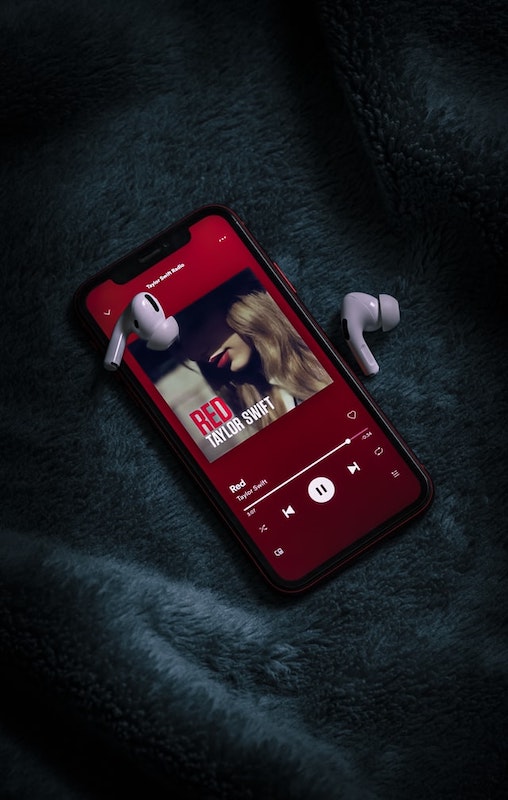In a groundbreaking re-release of her hit song, “Love Story (Taylor’s Version),” Taylor Swift broke records, collecting 5.8 million on-demand audio streams in the United States on Feb. 12, the day of its release. Swift made the announcement on Feb. 11 that she had re-recorded her hit 2008 album, “Fearless,” and re-released “Love Story (Taylor’s Version)” on the following day. With hits from “evermore” still remaining in Billboard’s “The Hot 100,” Swift remains at the top of the charts, but this time, with music she owns entirely.
It is no surprise that Swift continues to succeed with both her surprise pandemic albums and her re-recorded music this year as one of the industry’s most talented and successful artists. Most things Swift does become great successes, but the credit for her talent has been granted to others for most of her career.
When Swift was a young artist, she signed with Big Machine Records and agreed to have her masters owned by Scott Borchetta. Borchetta then sold the record label to Ithaca Holdings, Scooter Braun’s company. Swift was infuriated that Braun now owned her masters,
writing in a Tumblr post that:
“When I left my masters in Scott’s hands, I made peace with the fact that eventually he would sell them. Never in my worst nightmares did I imagine the buyer would be Scooter.”
Swift has long been open to her original masters’ owner, Borchetta, about her feelings toward Braun, but behind closed doors, Borchetta went with the money, selling Swift’s masters for over $300 million dollars and leaving Swift to find out via a public announcement.
Swift’s initial 13-year obligation to Big Machine Records has expired, and now so has her re- record clause. She plans on re-recording all her albums from her debut self-titled album in 2006, “Taylor Swift,” to the last album owned under Big Machine Records, the 2017 hit, “Reputation.” Swift will then own all of her music and have control of her masters.
After all this public drama with Swift, Braun and the fight over her masters, people are left questioning what is a masters, and why is it so important? The masters of an artist refers to the rights to their music. It is essentially the ownership of the original piece of music that all of the streams, CDs, or vinyls originate from. The importance of the ownership of the masters comes from the ability to choose when the original is released to the public and also controls the monetary gain from any partnerships with movies or television show soundtracks.
Through this public process of Swift fighting to have control over her own music, the public’s eye has been opened to the manipulation of artists, corruption, and greed that occurs in the music industry. Most artists do not own the masters of all of their songs created during a record deal— the label does. But as Swift has been very vocal over the process of owning her music, she has spearheaded a movement for artists to want to control their own work.
Owning your own work is extremely important for an artist, as they can then have a say over the decisions made about the artistic work of the album. When an artist does not own their own work it can lead to corruption within the label and manipulation of the artist. For example, the hit pop artist Kesha had major issues with her label and has had ongoing legal battles with her producer, Dr. Luke, for five years over things ranging from emotional abuse to rape. This story is all too common among power dynamics between artists and their labels. This also creates unequal power for artists who fear they will be dropped by the label and feel as if they need to do whatever they can to prove their music is worth that spot. If artists owned their own masters it would diminish the likelihood that these corrupt actions would occur throughout Hollywood as much as they do.
Another reason why artists should push to own their masters is because having the rights to one’s own music gives that artist the legal right to maximize their money-making opportunities. They would eliminate the label from making money off thirds parties like TV shows or commercials. For well-known artists like Swift, the extra compensation that goes to the label does not make the most drastic difference, but for up and coming artists, this recognition from movies or television soundtracks can make the difference needed to kick start their career.
Although it is an unconventional way to start a career path in the music industry these days, I
think that artists owning their own masters is the way of the future. It can be more difficult
without a label behind an artist to support a startup career, but there are other solutions. An artist could make agreements with their label but not give them the rights to their masters. With a spokeswoman like Swift, I hope to see other artists listen to her and fight for owning their own work. This will reduce corruption and is more likely to level the playing field between artists as well, truly just focusing on what matters most– the music.
Featured Image courtesy of Omid Armin via Unsplash
















































































































